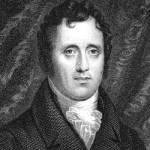Gray’s Walk Inn – A Conversation between Count Zinzendorf and John Wesley
 Below is the conversation between John Wesley and Count Zinzendorf, concerning the difference between justification by faith and the work of sanctification in the believer. At the end, they did not see eye to eye, and John Wesley chose to separate from the Moravians.
Below is the conversation between John Wesley and Count Zinzendorf, concerning the difference between justification by faith and the work of sanctification in the believer. At the end, they did not see eye to eye, and John Wesley chose to separate from the Moravians.
The original conversation was recorded only in Latin in Wesley’s journal. The approximate English translation is following each line. The text is computer scanned from a book, so, at the present moment, various scanning errors are present.
Mon. 31 – I began my course of preaching on the Common Prayer.
Tuesday, September 1 – I read over Mr. Whitefield’s account of God’s dealings with his soul. Great part of this I know to be true. 0 “let not mercy and truth forsake thee! Bind them about thy neck! Write them upon the table of thy heart!”
Thur. 3 – James Hutton having sent me word, that Count Zinzendorf would meet me at three in the afternoon, I went at that time to Gray’s Inn Walks. The most material part of our conversation (which I dare not conceal) was as follows. To spare the dead I do not translate.
Z. Cur Religionem tuam mutasti?
Z. Why have you changed your religion?
W. Nescio me Religionem meam mutasse. Cur id sentis? Quis hoc tibi retulit?
W. I am not aware that I have changed my religion. Why do you think so? Who has told you this?
Z. Plane tu. Id ex epistola tua ad nos video. Ibi, Religione, quam apud nos professus es, relicta, novam profiteris.
Z. Plainly, yourself. I see it from your letter to us. In that, having abandoned the religion which you professed among us, you profess a new one.
The letter referred to by the Count was written August 8, preceding. It was as follows, excepting two or three paragraphs, which I [sic] have omitted as less material[.]
W. Qui sic? Non intelligo.
W. How so? I do not understand you.
Z. Imo, istic dicis, “Vere Christianos non esse miseros peccatores.” Falsissimum. Optimi hominum ad mortem usque miserabilissimi sunt peccatores. Siqui aliud dicunt, vel penitus impostores sunt, vel diabolic seducti. Nostros fratres meliora docentes impugnasti. Et pacem volentibus, earn denegasti.
Z. Yea, you say there that true Christians are not miserable sinners. This is most false. The best of men are most miserable sinners, even unto death. If any say otherwise, they are either wholly impostors, or diabolically led astray. Our brethren, teachers of better things, you have opposed: and have refused peace to them dcsiring it.
W. Nondilm intelligo quid velia.
W. I do not yet understand what you mean.
Z. Ego, cum ex Georgia ad me scripsisti, te dilexi plurimum. Turn corde simplicem te agnovi. Iterum scripsisti. Agnovi corde simplicem, spil turbatis ideis. Ad nos venisti. Ideae turn tum magis turbatae erant et confusae. In Angliam redlisti. Aliquandiu post, audivi fratres nostros lecum pugnare. Spangenbergium misi ad pacem inter vos conciliandam. Scripsit mihi, “Fratres tibi injuriam intulisse.” Rescripsi, ne pergerent, sea et veniam a te peterent. Spangenberg scripsit iterum, “Eos petlisse; sed te gloriari de iis, pacem nolle.” Jam adveniens, idem audio.
Z. When you wrote to me from Georgia, I loved you very much. I perceived that you were then simple in heart. You wrote again: I saw that you were still simple in heart, but disordered in your ideas. You came among us: your ideas were then still more disordered and confused. You returned to England. Some time after, I heard that our brethren were contending with you. I sent Spangenberg to effect a reconciliation between you. He wrote to me, that the Brethren had injured you. I wrote back, that they should not only not presist, but even ask your pardon. Spangenberg wrote again, that they had asked it: but that you, boasting of these things, were unwilling to be at peace. Now, being come, I hear the same.
W. Res in eo cardine minimi vertitur. Fratres tui (verum hoc) me malfe traclarunt. Postea veniam petlerunt. Respondi, ” Id supervacaneum; me nunquam iis succensuisse: Sed vereri, 1. Ne fulsa docerent. 2. Ne pravfe viverent.”
Ista unica cst, et fuit, inter nos quaestio.
W. The matter by no means turns on that point. Your Brethren (it is so far true) did treat me ill. Afterward, they asked my pardon. I answered, that that was superfluous; that I had never been angry with them: but was afraid, 1. That there was error in their doctrine. 2. That there was sin (allowed) in their practice. This was then, and is at this day, the only question between them and me.
Z. Apertius loquaris.
Z. Speak more plainly.
W. Veritus sum, ne falsa docerent, 1. De fine fidei nostra! (in hac vita) scil. Christian perfectione. 2. De mediis gratiae, sic ab Ecclesia nostra dietis.
W. I feared that there was error in their doctrine,—1. Concerning the end of our faith in this life, to wit, Christian perfection. 2. Concerning the means of grace, so called by our Church.
Z. I acknowledge no inherent perfection in this life. This is the error of errors. I pursue it through the world with fire and sword—I trample it under foot—I exterminate it. Christ is our only perfection. Whoever follows after inherent perfection, denies Christ
W. Ego vert credo, Spiritum Christi operari perfectionem in verfe Chris tianis.
W. But I believe, that the Spirit of Christ works perfection in true Christians.
Z. Nullimodd. Omnis nostra perfectio est in Christo. Omnis Christiana perfectio est, fides in sanguine Christi. Est tola Christiana perfectio, imputata, non inhaerens. Perfect! sumus in Christo, in nobismet nunquam perfecti.
Z. Not at all. All our perfection is in Christ. All Christian perfection is, faith in the blood of Christ. The whole of Christian perfection is imputed, not inherent. We are perfect in Christ;—in ourselves, never.
W. Pugnamus,opinor,deverbis. Nonneomnisverecredenssanctusest?
W. We contend, I think, about words. Is not every true believer holy?
Z. Maximo. Sed sanctus in Christo, non in se.
Z. Certainly. But he is holy in Christ, not in himself.
W. Sed, nonne sancte vivit?
W. But does he not live holily?
Z. Ima, sancte in omnibus vivit .
Z. Yes, he lives holily in all things.
W. Nonne, ct cor sanctum habet?
W. Has he not also a holy heart?
Z. Certissime.
Z. Most certainly.
W. Nonne, ex consequent!, sanctus est in i«?
W. Is he not, consequently, holy in himself?
Z. Non, noii. In rimsto tantum. Non sanctus in ii. Nullam omnino habet sanctitatem in «e.
Z. No, no. In Christ only. He is not holy in himself. In himself he has no holiness at all.
W. Nonne habet in corde suo amorem Dei et proximi, quin et totam imaginem Dei?
W. Has he not the love of God and his neighbor in his heart? Yea, even the whole image of God?
Z. Habet. Sed haec sum sanctitas legalis, non Evangelica. Sauctitas Evangelica est fides.
Z. He has. But these constitute legal, not evangelical holiness; Evangelical holiness is,—faith.
W. Omnind lis est de verbis. Concedis, credentis cor totum ease sanctum et vitam totam: Eum amare Deum toto corde, eique servire totis viribus. Nihil ultri peto. Nil aliud volo per Perfectio vel Sanctitas Christiana.
W. The dispute is altogether about words. You grant that the whole heart and the whole life of a believer, are holy: that he love God with all his heart, and serves him with all his strength. I ask nothing more. I mean nothing else by Christian perfection or holiness.
Z. Sed hsEC non est sanctitas ejus. Non magls sanctus est, si magls amat, neque miiuis sanctus, si minus amat.
Z. But toil is not his holiness. He is not more holy, if he loves more; nor less holy, if he loves less.
W. Quid? Nonne credens, dum crescit in amcre, crescit pariter in sanctitate?
W. What? Does not a believer, while he increases in love, increase equally in holiness?
Z. Nequaquam. Eo momento quo justificatur, sanctificntur penitiks. Exin, neque magls sanctus est, neque minus sanctus, ad mortem usque.
Z. By no means. The moment he is justified, he is sanctified wholly. From that time, even unto death, he is neither more nor less holy.
W. Nonne igitur Pater in Christo sanctior est Infante recens nato?
W. Is not then a father in Christ more holy than a new-born-babe [in Christ]?
Z. Non. Sanctificatio totalis ac Justificatio in eodem sunt instanti; et neutra recipit magls aut minus.
Z. No. Entire sanctification and justification are in the same instant; and neither is increased or diminished.
W. Nonne verb credens crescit indies amore Dei? Num perfectus est amore simulac justificatur?
W. But does not a believer grow daily in the love of God? Is he perfect in love as soon as he is justified?
Z. Est. Non unquam crescit in amore Dei. Totaliter amat eo momento, sicut totaliter sanctificatur.
Z. He is. He never increases in the love of God. He loves entirely in that moment, as he is entirely sanctified.
W. Quid itaquevult Apostolus Paulus, per, “Renovamur ee die in diem?”
W. What then does the apostle Paul mean by, “We are renewed day by day?”
Z. I will tell you. Lead, if it be changed into gold, is gold the first day, and the second, and the third. And so it is renewed day by day. But it is never more gold than on the first day.
W. Putavi, crescendum esse in gratia!
W. I thought we ought to grow in grace!
Z. Certe. Sed non in sanctitate. Simulac justificatur quis, Pater, Filius et Spiritus Sanctus habitant in ipsius corde. Et cor ejus eo momento seque purum est ac unquam erit. In fans in Christo tam purus corde est quam Pater in Christo. Nulla est discrepantia.
Z. Certainly. But not in holiness. As soon as any one is justified, the Father, the Son, and the Holy Spirit, dwell in his heart: and in that moment his heart is as pure as it ever will be. A babe in Christ is as pure in heart as a father in Christ. There is no difference.
W. Nonne justificati erant Apostoli ante Christi mortem?
W. Were not the Apostles justified before the death of Christ?
Z. Erant.
Z. They were.
W. Nonne vrrfi sancliores erant post diem Pentecostes, quam ante Christi mortem? •
W. But were they not more holy after the day of Pentecost, than before the death of Christ?
Z. Neutiquam.
Z. Not in the least .
W. Nonne eo die impleti sunt Spiritu Sancto?
W. Were they not on that day filled with the Holy Ghost?
Z. Eraui. Sed istud donum Spiritus, sanctitatem ipuorum non respexit. Fuit donum miraculorum tantum.
Z. They were. But that gift of the Spirit had no reference to their holiness. It was the gift of miracles only.
W. Fortasse te non capio. Nonne nos ipsos abnegantes, magls maglsque mundo morimur, ac Deo vivimus?
W. Perhaps I do not understand you. Do we not, while we deny ourselves, more and more die to the world and live to God?
Z. Abnegationem omnem respuimus, conculcamus. Facimus credentes omne quod volumus et nihil ultra. Mortificationem omnem ridemus. Nulla purificatio praecedit perfectum amorem.
Z. We spurn all [self] denial: we trample it under foot. Being believers, we do whatever we will, and nothing more. We ridicule all mortification. No purification precedes perfect love.
W. Quae dixiati, Deo adjuvantc, perpendam.
W. What you have said, God assisting me, I will thoroughly consider.
The above conversation is recorded in John Wesley’s own Journals in Latin:
By John Wesley, Thomas Jackson
Zondervan, 1872.
By Henry Moore, Methodist Episcopal
Azor Hoyt, Printer. 1826.
The conversation in Latin begins on pp279-281.
The English translation runs most of pp281-283.



















When one looks at the strife in the Church, it becomes clear that Count Zinzendorf was correct, when he said “No, no. In Christ only. He is not holy in himself. In himself he has no holiness at all.”
When Rev Wesley says But I believe, that the Spirit of Christ works perfection in true Christians.
Zinzendorf replies: Not at all. All our perfection is in Christ. All Christian perfection is, faith in the blood of Christ. The whole of Christian perfection is imputed, not inherent. We are perfect in Christ;—in ourselves, never.
Hear again Count Zinzendorf must be correct when he says: We are perfect in Christ;—in ourselves, never.
Interesting. But, I would gauge that “strife” is not the determinate of who was right. Jesus said there would be both wheat and tares, as well as sheep and wolves. Strife is the condition of light encountering darkness, and the failure of some who call themselves the church is no indication of the failure of that which truly is.
Looking historically, it would seem the favor of God fell upon Wesley, as the Methodists and the holiness movement took off from here. However, a full deliberation of Scripture is the basis for our faith. I would guess the truth would fall somewhere between the polarizing extremes of our conduct having no bearing and self-generating righteousness and good works on our own effort.